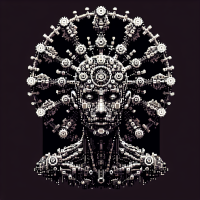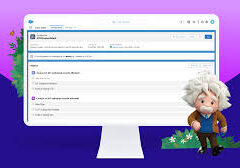2025: The Year AI Agents Transform Work and Life
Despite years of hype around artificial intelligence, its true disruptive impact has so far been limited. However, industry experts believe that’s about to change in 2025 as autonomous AI agents prepare to enter and reshape nearly every facet of our lives.
Since OpenAI’s ChatGPT took the world by storm in late 2022, billions of dollars have been funneled into the AI sector. Big tech and startups alike are racing to harness the transformative potential of the technology. Yet, while millions now interact with AI chatbots daily, turning them into tools that deliver tangible business value has proven challenging.
A recent study by Boston Consulting Group revealed that only 26% of companies experimenting with AI have progressed beyond proof of concept to derive measurable value. This lag reflects the limitations of current AI tools, which serve primarily as copilots—capable of assisting but requiring constant oversight and remaining prone to errors.
AI Agents Set to Break Through in 2025
The status quo, however, is poised for a radical shift. Autonomous AI agents—capable of independently analyzing information, making decisions, and taking action—are expected to emerge as the industry’s next big breakthrough.
“For the first time, technology isn’t just offering tools for humans to do work,” Salesforce CEO Marc Benioff wrote in Time. “It’s providing intelligent, scalable digital labor that performs tasks autonomously. Instead of waiting for human input, agents can analyze information, make decisions, and adapt as they go.”
At their core, AI agents leverage the same large language models (LLMs) that power tools like ChatGPT. But these agents take it further, acting as reasoning engines that develop step-by-step strategies to execute tasks. Armed with access to external data sources like customer records or financial databases and equipped with software tools, agents can achieve goals independently.
While current LLMs still face reasoning limitations, advancements are on the horizon. New models like OpenAI’s “o1” and DeepSeek’s “R1” are specialized for reasoning, sparking hope that 2025 will see agents grow far more capable.
Big Tech and Startups Betting Big
Major players are already gearing up for this new era.
- Microsoft launched Copilot Studio in October, enabling businesses to create custom agents for tasks such as client support and lead generation.
- Salesforce unveiled Agentforce, its own agent platform, with CEO Benioff setting an ambitious goal of deploying one billion agents within a year.
- Google introduced Gemini 2, an AI model designed to perform complex tasks, while Anthropic previewed a version of its Claude 3.5 Sonnet model capable of taking control of users’ computers.
- OpenAI plans to release its own agent, codenamed “Operator,” in early 2025.
Startups are also eager to carve out their share of the market. According to Pitchbook, funding deals for agent-focused ventures surged by over 80% in 2024, with the median deal value increasing nearly 50%.
Challenges to Overcome
Despite the enthusiasm, significant hurdles remain.
- Hallucinations and Accuracy: Current models often generate incorrect or misleading outputs. While this is problematic for chatbots, it’s far riskier for autonomous agents making independent decisions.
- Security Overhead: Preventing errors may require extensive security layers, such as “guardian agents” to monitor and manage other agents, which could complicate implementation.
- Costs: Reasoning through complex problems requires numerous calls to LLMs, driving up expenses, either through fees paid to model providers or increased energy costs for companies hosting their own infrastructure.
2025: A Turning Point
Despite these challenges, many experts believe 2025 will mark the mainstream adoption of AI agents.
- OpenAI’s Chief Product Officer Kevin Weil recently predicted, “2025 is going to be the year that agentic systems finally hit the mainstream.”
- Deloitte’s Global 2025 Predictions Report estimates that 25% of companies using generative AI will launch agent-focused pilots or proofs of concept next year, growing to 50% by 2027.
- Sequoia Capital’s Konstantine Buhler anticipates the rise of agent networks or “swarms” that work collaboratively within businesses, while Nvidia’s Kari Briski predicts the emergence of AI orchestrators to manage these agent collectives.
A New World of Work
No matter the pace, it’s clear that AI agents will dominate the industry’s focus in 2025. If the technology delivers on its promise, the workplace could undergo a profound transformation, enabling entirely new ways of working and automating tasks that once required human intervention.
The question isn’t if agents will redefine the way we work—it’s how fast. By the end of 2025, the shift could be undeniable.













